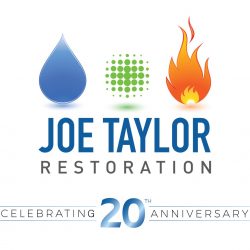Honesty, Integrity and a Successful Business
Date
Tuesday, February 19, 2013
Date
Tuesday, February 19, 2013
In today’s environment we see many different pictures of success. We see a startup go from a garage to the most valuable company in the world (Apple, Inc.), all within the span of 37 years. Other companies come on the scene, find a great deal of success, then fail, such as Enron. The subject of this month’s newsletter is not why some business are successful and others are not, but rather why companies that exude honesty and integrity are much more likely to succeed than those who lack these two qualities. First, let’s define the two words to give context: Honesty (noun) – fairness and straightforwardness of conduct; adherence to the facts. Its synonym is sincerity. Integrity (noun) – firm adherence to a code of especially moral or artistic values: incorruptibility. Also, an unimpaired condition: soundness.
Today’s environment has become muddled with many different opportunities to lie, cheat and steal your way to the top. But inevitably these companies and corporations come crashing down- why? The reality is that when building a long-term, successful business, you need a certain amount of repeat business and/or referrals from existing or one-time clients, otherwise the short-term dishonesty will catch up.
Using fictitious characters, let’s say John purchases from ABC Company who dishonestly sells him a product that does not live up to the expectations set forth by the company. Do you expect John to either purchase another product from the ABC Company or recommend this company to his friend? Most likely not. A very best case scenario for the company is that John gives them the benefit of the doubt and makes another purchase. If again he feels slighted, the answer now to the previous question is most certainly NO.
Statistically, a dissatisfied customer will tell 9-15 people about their bad experience, and 91% of all dissatisfied customers will never return. Taking these numbers into account, it is easy to see why companies that do not show honesty and integrity will eventually fail. The most telling statistic is that 70% of buying experiences are solely based on how the customer feels they are being treated; this has NOTHING to do with the product itself.
Now, what if I forced you to buy a product and then misled you as to what the product actually does- how would you feel? This is the danger of property insurance. Property insurance is required by the majority of mortgage companies, making it a necessity for mostly all homeowners. It is easy to see why consumers need to feel that their agent is honest and possesses integrity. No one wants to feel like they were “sold” anything. We all like to feel a sense of control, informed and empowered buyers. So when a product is essentially “forced” on us, we need to feel like we are getting a great deal, and we need to feel that we have a grasp on what the product offers. Otherwise, we will be unhappy with said product and will treat that product as an unwanted expense, most likely shopping around and trying to get the lowest price.
Opposite the agent in the insurance world is the claims department, which is the environment we typically work in. Just as there are many agencies that use dishonest tactics (cutting coverage without the homeowners knowledge to keep costs down, as well as removing replacement cost), there are also dishonest remediation companies who thrive on homeowners who are flustered and confused in the midst of a water, fire or mold related loss.
What we have noticed recently, undoubtedly because of the economy, is that remediation companies are misrepresenting themselves to both insurance agencies and homeowners. This presents a problem for the homeowner, who, depending on the remediation company and the paperwork signed, can lose control of their claim completely, while also being sued by the contractor. With respect to the agency, a customer might feel that the agent should have helped them in a time of need, and as a result the client may switch agents.
Also, many of the disreputable remediation companies are now explaining to the homeowner that insurance will pay for ______(fill in the blank, usually a kitchen or new floors), which results in higher costs, leading to higher claims, which invariably leads to higher loss ratios. In addition, the carrier will often deny the claim because the claim requests are not consistent with the damage; this leaves the homeowner solely responsible for the invoice from the remediation contractor. Talk about being shocked! The homeowner goes from sheer elation at the prospect of the insurance company paying for a new kitchen, to being sued by the contractor for services rendered and ultimately paying the entire cost out of pocket.
So now that the problem is presented, what is the solution? It is quite simple actually; refer out only a preferred vendor for that insurance carrier. Preferred vendors must follow a strict set of guidelines from that carrier which protect the homeowner, such as: negotiated pricing, customer service expectations, proper insurance, necessary operating licenses and the list goes on. “That’s great,” you might say, but how does that relate to the opening salvo about integrity, honesty and business success? The reality is, you are only as good as your worst vendor. If you refer out honest companies who will do right by the homeowner and treat everyone fairly and with compassion, then your clients will recognize that and rely on you as the trusted source for insurance and all thing related to it. If they trust you, they will refer others to you, thus sustaining and expanding your successful business.

